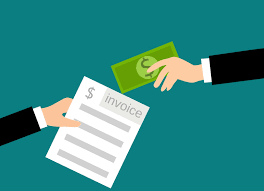Startups & Billing Choices: Subscription and Usage-Based Pricing
Generally, startups will find two main ways to charge their customers for the use of their services. Either via subscription or usage/consumption. The subscription model may seem convenient, but why might a company choose to switch to a usage system?

What is the Usage-Based Model?
In its simplest form, the usage-based model is 'pay as you go' or 'pay for what you use.' Rather than paying flat fees for a subscription or access to a service, customers pay only for what they consume. A simple comparison may be, for example, a contract cellphone vs. pay-as-you-go SIM.
Subscription services are convenient, on the surface, for all parties. For example, SaaS startups will level their products to customers at a streamlined, easy-to-understand monthly rate. However, many companies are finding usage or consumption models that little more flexible. For some, it may even be more cost-effective.
What are the Benefits of Usage-Based Pricing?
For smaller companies, a subscription system may seem attractive due to its simplicity. However, usage-based pricing can help firms to scale up in the months and years to come. Offering a pay-by-use model means firms can actively see what their customers are using. This means that they can fine-tune their products and services ad hoc.
For the customer, usage-based pricing with invoice digital payments is tempting as it offers the chance to 'trial' a service. A new adopter may wish to temporarily pay for what they use instead of stake a month's fee upfront. Should the customer want to continue, they use the service more and budget ahead of time.
Company heads may find it easier to justify a diverse range of features and facilities via usage models. For example, how do you adequately price one feature over another in a subscription system? One user's needs will likely differ from the next.
Which Startups Benefit the Most from Usage-Based Models?
We can already see ventures and companies benefitting hugely from usage-based pricing. For example, cloud computing services charge per feature rather than a large, flat rate for all services. Not all customers will need access to all features.
Of course, popular pay-as-you-go services in the public eye include cab-hailing apps such as Uber and Lyft. Not only that, but Apple's iTunes pay-per-track music service is a long-running example of usage-based success.
Startups with a wide range of features and facilities will likely benefit from usage-based pricing. It is not always possible to justify a flat fee for a service that has multiple different uses.
Can Usage-Based Models Incentivize Customers?
Yes – however, it will vary from company to company. Investors may be able to find usage-based startups easily through databases such as Fundz. However, this is still a growing concept, particularly as Netflix and Spotify show subscriptions are very popular. CEOs need to consider the real value of their products – and weigh up the pros and cons.
Sources
https://www.chargebee.com/blog/consumption-economy-subscription-economy/
https://billingplatform.com/blog/usage-based-pricing-offers-higher-revenue-than-pure-subscriptions
https://www.priceintelligently.com/blog/subscription-pricing
http://breakthrough.unglobalcompact.org/breakthrough-business-models/usage-based-pricing/
https://www.zuora.com/guides/launching-a-consumption-based-pricing-model-what-why-and-how/
Topic: Startups